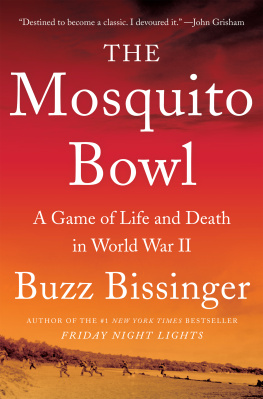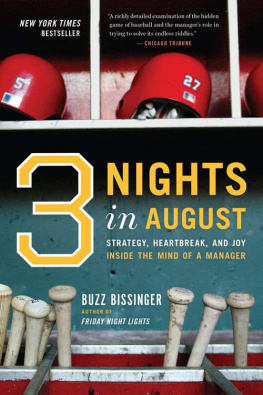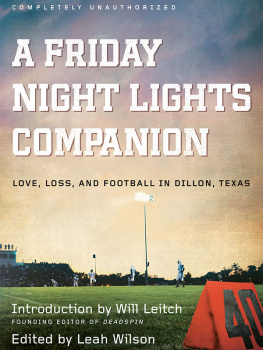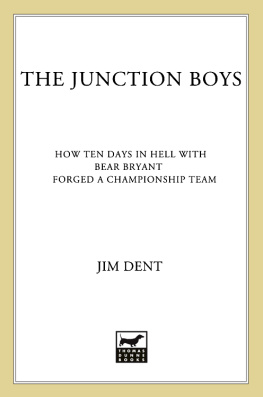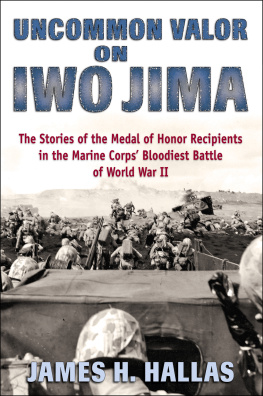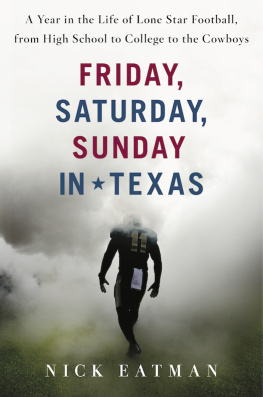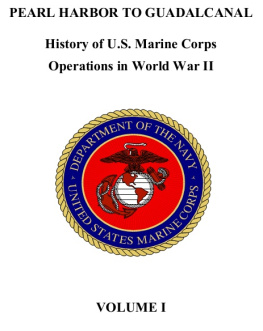Buzz Bissinger - The Mosquito Bowl: A Game of Life and Death in World War II
Here you can read online Buzz Bissinger - The Mosquito Bowl: A Game of Life and Death in World War II full text of the book (entire story) in english for free. Download pdf and epub, get meaning, cover and reviews about this ebook. year: 2022, publisher: Harper, genre: Detective and thriller. Description of the work, (preface) as well as reviews are available. Best literature library LitArk.com created for fans of good reading and offers a wide selection of genres:
Romance novel
Science fiction
Adventure
Detective
Science
History
Home and family
Prose
Art
Politics
Computer
Non-fiction
Religion
Business
Children
Humor
Choose a favorite category and find really read worthwhile books. Enjoy immersion in the world of imagination, feel the emotions of the characters or learn something new for yourself, make an fascinating discovery.
- Book:The Mosquito Bowl: A Game of Life and Death in World War II
- Author:
- Publisher:Harper
- Genre:
- Year:2022
- Rating:3 / 5
- Favourites:Add to favourites
- Your mark:
The Mosquito Bowl: A Game of Life and Death in World War II: summary, description and annotation
We offer to read an annotation, description, summary or preface (depends on what the author of the book "The Mosquito Bowl: A Game of Life and Death in World War II" wrote himself). If you haven't found the necessary information about the book — write in the comments, we will try to find it.
Buzz Bissingers Friday Night Lights is an American classic. With The Mosquito Bowl, he is back with a true story even more colorful and profound. This book too is destined to become a classic. I devoured it. John Grisham
An extraordinary, untold story of the Second World War in the vein of Unbroken and The Boys in the Boat, from the author of Friday Night Lights and Three Nights in August.
When the Japanese attacked Pearl Harbor, college football was at the height of its popularity. As the nation geared up for total war, one branch of the service dominated the aspirations of college football stars: the United States Marine Corps. Which is why, on Christmas Eve of 1944, when the 4th and 29th Marine regiments found themselves in the middle of the Pacific Ocean training for what would be the bloodiest battle of the war the invasion of Okinawatheir ranks included one of the greatest pools of football talent ever assembled: Former All Americans, captains from Wisconsin and Brown and Notre Dame, and nearly twenty men who were either drafted or would ultimately play in the NFL.
When the trash-talking between the 4th and 29th over who had the better football team reached a fever pitch, it was decided: The two regiments would play each other in a football game as close to the real thing as you could get in the dirt and coral of Guadalcanal. The bruising and bloody game that followed became known as The Mosquito Bowl.
Within a matter of months, 15 of the 65 players in The Mosquito Bowl would be killed at Okinawa, by far the largest number of American athletes ever to die in a single battle. The Mosquito Bowl is the story of these brave and beautiful young men, those who survived and those who did not. It is the story of the families and the landscape that shaped them. It is a story of a far more innocent time in both college athletics and the life of the country, and of the loss of that innocence.
Writing with the style and rigor that won him a Pulitzer Prize and have made several of his books modern classics, Buzz Bissinger takes us from the playing fields of Americas campuses where boys played at being Marines, to the final time they were allowed to still be boys on that field of dirt and coral, to the darkest and deadliest days that followed at Okinawa.
Buzz Bissinger: author's other books
Who wrote The Mosquito Bowl: A Game of Life and Death in World War II? Find out the surname, the name of the author of the book and a list of all author's works by series.

